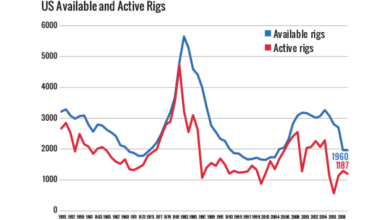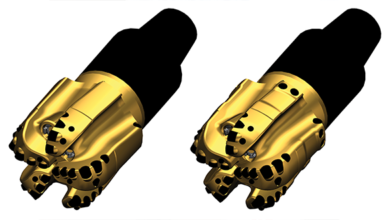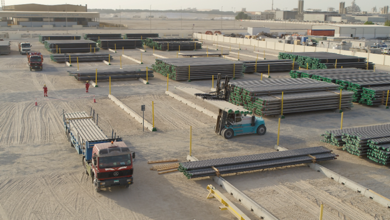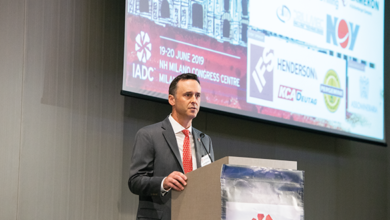Andrea Marques Machado, Brazil’s ANP: Industry should learn to better tell its story, or someone else will tell the story for you
By Linda Hsieh, Editor & Publisher
As a communications professional in the oil and gas industry, it can sometimes be difficult to convince technically focused colleagues to turn their attention from day-to-day operations and focus on information sharing. However, in an industry that receives so much public scrutiny, sharing or not sharing information can make the difference in how an organization or even an entire industry is perceived by the public.

Especially when emergency incidents occur, communication must be prioritized to achieve effective crisis management. “The most important thing is to keep communicating. You should tell your story. Otherwise someone will tell the story for you,” said Andrea Marques Machado, Superintendent of Communications and Institutional Relations for Brazil’s National Agency of Petroleum, Natural Gas and Biofuels (ANP). Prior to joining ANP, she had served as Senior Manager of Communications for BP in Brazil.
“The oil and gas industry is often reactive. Especially during a crisis, it can be difficult to confirm information about things like oil volumes. It can be hard to be precise, and most companies tend to be very careful with sharing any information,” Ms Machado said. “What I would say is that, of course we need to confirm information before releasing it to the public, but it’s also important to give the public a sense of what you’re doing. People need to know that your company is prepared and is taking action. Tell your story.”
Early career
Ms Machado, who was born and raised in Rio de Janeiro, developed a fascination for TV commercials and advertising from an early age. But while attending the Federal University of Rio de Janeiro in the early ’90s, she “became more and more enthusiastic about how communications can bring positive impact to people and organizations.”
So after graduating from university, and with influence from her mother – who worked for Petrobras for more than 25 years – Ms Machado joined a Petrobras subsidiary as Communications Intern.
While the one-year internship provided a foundation in oil and gas that would prove valuable later in her career, Ms Machado soon left the industry and moved into Brazil’s telecom business, which had just ended a state-controlled monopoly. One of her major achievements during this period was helping to launch the first prepaid mobile phones in Brazil offered by a private company. The company reached 30% of market share in just six months, she recalled.
Back into oil and gas
After spending nearly 12 years in the telecom industry, Ms Machado received an opportunity to rejoin the oil and gas industry when she was hired in 2009 by SHV Gas, a downstream company, as Marketing Communications Senior Coordinator. This was where she would gain her first experience with crisis management when the company experienced a fatal gas explosion.
A couple of years later, she joined BP as Senior Manager of Communications; the supermajor had recently acquired the largest portfolio of assets for an IOC in Brazil.
One major project that Ms Machado participated in soon after joining BP was the preparation and execution of the largest offshore emergency response drill conducted in Brazil. The drill was undertaken as part of the environmental licensing process for BP to drill its first exploration well in the Camamu Basin in Bahia. “The drill was 11 days involving 1,000 people and 260 vessels,” she recalled. “Those were intensive days.”
Ms Machado, who served as Public Information Officer, and her team of approximately 15 people simulated newspaper and TV coverage of a emergency event, responding to large volumes of media calls and coordinating information sharing. The drill was a great success, she recalls, with many lessons learned in the importance of strong communications during a crisis.
Being part of a transformation
In 2017, Ms Machado assumed her current role at ANP, noting that she was attracted to the regulatory agency because she recognized “it’s a unique opportunity to be part of the industry in this moment of transformation.”
Over the past couple of years, ANP has undertaken a series of initiatives aimed at making the Brazilian E&P regulatory framework more transparent, more stable and more welcoming to foreign investments.
For example, after going for more than five years without holding any licensing rounds, ANP kicked off a string of acreage auctions for pre-salt, conventional offshore and mature basins, all functioning under a clear and visible calendar that goes out to 2021. Local content requirements have been lowered substantially. Further, pre-salt operatorship was opened to foreign E&P companies.
“We have had a lot of progress in the upstream in the last two years. The regulatory improvements attracted new investments, which were reflected in the results of the bid rounds, with the diversity of players, competitiveness of bids and presence of big companies,” she said, noting that auctions over the past two years have resulted in $112 billion in investments. “To be in this agency, to be part of this transformation is very satisfying for me.” DC





